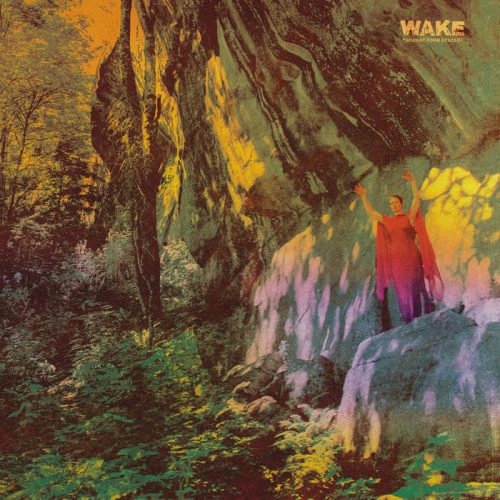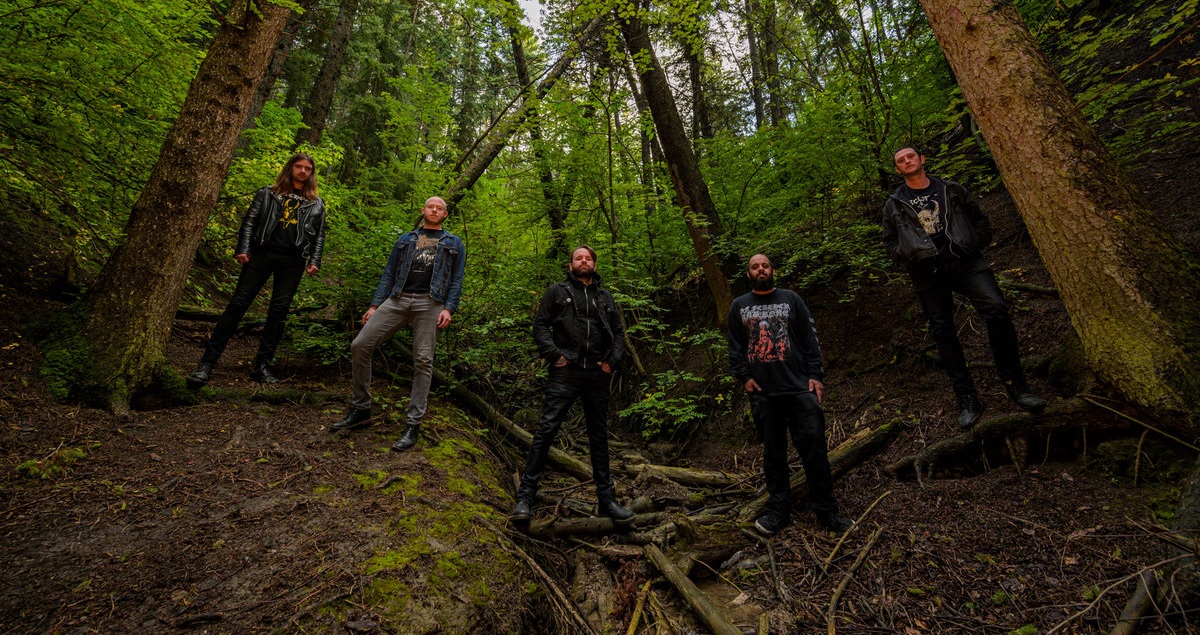
(Andy Synn reviews Thought Form Descent, the upcoming sixth album from Canada’s Wake)
They say that the only constant in life is change – and Wake‘s discography is a prime example of this.
Casting an eye/ear over their back-catalogue you can observe their sound evolving, little by little, with each and every release, but 2020’s Devouring Ruin was such a quantum-leap that I think even the band themselves must have been surprised by what they had created.
Perhaps that’s why their new album, Thought Form Descent (scheduled for release next Friday) feels more reflective – though still blisteringly intense – than anything they’ve ever done before… because they’ve finally taken the time to take stock of who they are, where they’ve come from, and what they might become.

It’s not just that songs like “Mourning Dirge” and “Observer to Master” serve as the next (and only) logical step onwards from what made Devouring Ruin such a revelation – a chimerical combination of ferocious, blasting frenzy, colossal, cathartic vocals, and dynamic, dissonantly-melodic guitar work, all interwoven with an even richer and more well-rounded sense of atmosphere – it’s the addition of several nuanced new elements, some overt, others more understated, which gives this album its unique character.
Scene-setting opener, “Infinite Inward”, for example, deftly introduces both emotive clean backing vocals (which, as you’ll discover, play a subtle, yet vital, role in many of the album’s tracks) and a dash of brooding acoustic guitar work into the mix, while “Swallow the Light” and “Venerate” both incorporate an unexpectedly Dark Tranquillity-esque Melodeath influence into their guitar work that adds yet another striking shade to the band’s ever-expanding creative palette.
And while every member of the band has clearly pushed their talents and abilities to new extremes (drummer Josh Bueckert in particular remain a consistently captivating highlight) what really sets this album apart – and becomes more obvious with each and every listen – is the underlying vibe, a sense of introspective intensity and almost dream-like contemplation (hints of which you can see reflected in the album’s unusual, eye-catching artwork) that positions Thought Form Descent as the band’s most poignant, yet punishing, record yet.
The only criticism I have is that “The Translation of Deaths” strikes me as something of an anti-climax coming on the heels of “Bleeding Eyes of the Watcher” – which effectively combines all of the existing elements of the band’s sound, both new and established, into one irresistible penultimate powerhouse – but, ultimately, this is a relatively minor complaint and will likely be a non-issue for most listeners when all is said and done.
Now, by this point, I’m sure, some of you will be asking the question “is it better than Devouring Ruin?”.
But that’s the wrong line of thinking to follow.
What you should be asking is whether this is the right album, the right way, to follow-up a record which – let’s be honest – not only exposed the band to a whole legion of potential new fans but which also opened up whole new avenues of possibility for their sound.
Thankfully the answer to that question is a resounding yes – this is without doubt the album the band needed to make, both for the sake of their career and as part of their artistic evolution… and, if there’s any justice in this world, it will also be the album which signals the beginning of a whole new era for them.
